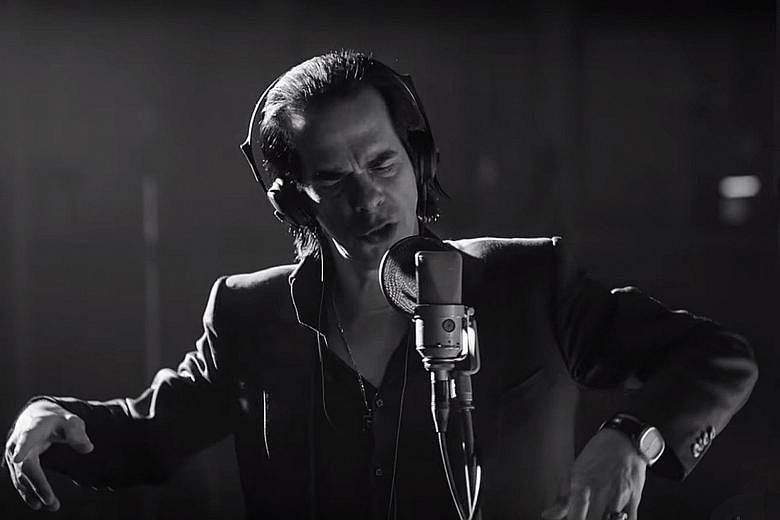Nothing prepares you for sudden death, especially the loss of someone in his prime.
That terrible loss haunts the 16th studio album from Nick Cave & The Bad Seeds: Cave's 15-year-old son, Arthur, died from a fall into the underpass of the Ovingdean Gap in Brighton a year ago while on a hiking trip.
Cave was working on Skeleton Tree in the English resort town at that time and the tragedy, amplified by its senselessness and his powerlessness, threatened to derail the recordings.
Instead, Cave - known as the Bard of gothic foreboding - channels his feelings, raw and unfettered, into the album. He invited New Zealand director Andrew Dominik to document the album's creation and the documentary, One More Time With Feeling, limns the unspeakable grief with profound poetry.
-
ALTERNATIVE ROCK
-
 SKELETON TREE
SKELETON TREENick Cave & The Bad Seeds
Bad Seeds
4/5 stars
The album, in comparison, delves into his sorrow, doused in surreal, mythological and Biblical imagery. The music is a stately spew of drones and ivory pinks, which moves and never follows a particular trajectory.
"You fell from the sky/Crash-landed in a field/Near the river Adur," are the opening lines of Jesus Alone - eerily prescient as it was written in late 2014, months before the incident.
"With my voice/I am calling you," Cave intones. The song, drenched in electronic drone and dolorous piano, is a seance. It feels more elemental than scary, more essential than mere mood-setting.
Arthur is never addressed explicitly - perhaps uttering his name would be unbearable. Whereas in the past, Cave's wrestling with matters of life and death, evil and goodness can seem admirably philosophical, here it cuts to the bone.
The pain is an internal wound and Cave doesn't flinch from it. He feels bottomless sadness, repeating the title in I Need You. He feels anger, a spigot of destructive terror turned on, in the intriguing Magneto, where he confesses: "Oh, the urge to kill somebody was basically overwhelming."
He takes solace in the strength of family. Rings Of Saturn is a tribute to the resilience of his wife, designer Susie Bick, whose centredness is the foil to Cave's inner turmoil. "And this is what she does and this is what she is," he half-speaks, an observer dazed in the aftershock. The music swirls like incense and memories are invoked without warning.
The song bleeds into Girl In Amber, a majestic dirge where his voice, bruised and almost airless, confronts some hard truths. "If you want to bleed, just bleed," he sings (to himself), the grief like an apparition, and the singer admits, "I knew the world would stop spinning now since you've been gone.
"I used to think that when you died you kind of wandered the world in a slumber/till you crumbled, were absorbed into the earth/But I don't think that anymore," Cave comes clean in the face of the cold, hard, inexorable days.
By the time one reaches the album title track at the end, one has gone to the farthest reaches of Cave's universe and returned, splintered, reconstituted, somehow pulled into a communion, tethered by invisible gravity.

